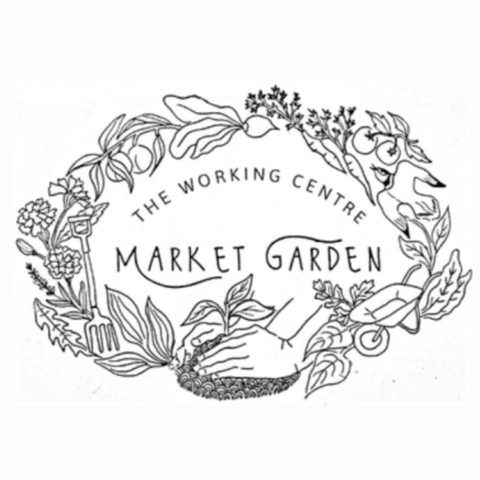
Urban agriculture can also involve:
- Animal husbandry - a branch of agriculture around raising animals for meat, fiber, milk or other food products
- Aquaculture - also known as aquafarming, is a controlled cultivation of fish and other aquatic organisms
- Agroforestry - is a land use management system in which trees or shrubs are grown around or among crops or pastureland
- Urban beekeeping - also known as hobby beekeeping or backyard beekeeping, is the practice of keeping bee colonies (hives) in towns and cities.
- Horticulture - is the art of cultivating plants in gardens to produce food and medicinal ingredients, or for comfort and ornamental purposes
Young City Growers is a grassroots initiative focused on creating urban agriculture opportunities for youth in the Waterloo Region.
"is a volunteer-driven community enterprise that demonstrates, promotes, and shares knowledge about sustainable local food production. It is an inclusive, hands-on teaching garden where all are welcome to join in the work of operating a market garden while building community and building skills. Alongside numerous other programs, businesses, and farms in Waterloo Region, our garden community is actively engaging in the work of building a more sustainable community based food system.”
“We’re a team of urban farmers who have a dream of growing produce locally at an affordable cost. As urban farmers, we’re bringing farming back to the city core, to improve food security and support local restaurants transition to a 100 mile menu. Through our work, we aim to provide a consistently reliable year round supply of fresh greens that are both flavourful and nutrient dense.”
Reports related to Waterloo Region
Addressing Barriers to Urban Agriculture in Waterloo Region
Assessment type: Policy and bylaw review regarding urban agriculture
Author(s): Marshman, J.
Year: 2013
Synopsis: This thesis reviews existing policies and bylaws in Waterloo Region and offers a comparison of these with bylaws in Vancouver, BC, where urban agriculture (UA) has been a key policy priority. A survey of 48 residents indicates that Waterloo Region continues to support UA stewardship, but more resources and policies could be put in place to continue this momentum. While efforts aimed at improving and increasing community gardens in the region have been successful, an UA action plan is needed to help promote and support UA at the household level throughout the region.
Urban foraging
Assessment type: A map of wild food on the University of Waterloo campus and outline of the challenges and benefits of urban foraging
Author(s): McConnell, L. and Inthavong, B.
Year: 2010
Synopsis: With the threat of environmental change looming, it can be important for urban residents to find alternative sources of food. This paper develops a map of wild foods on the University of Waterloo campus and outlines possible barriers and benefits of urban foraging. This paper asks the question: "Is urban foraging a potential food source for university students?" The objectives of this question is to investigate the viability of urban foraging as an alternative food source for university students and to gain a better understanding of how urban foraging fits into the alternative food system. This is done through a literature review of other foraging initiatives and their implementation as well, with wild foods mapping.
Urban Agriculture Report
Assessment type: Region of Waterloo Public Health report
Author: Mazereeuw, B.
Year: 2005
Synopsis: Urban agriculture will likely increase in need due to population growth and urban density. Report highlighting the benefits of community gardens, rooftop gardens (and greenroofs), and private (ie. backyard gardens) in Waterloo Region. Potential benefits for: sustainability, viability, livability, community, equity, and prosperity.


